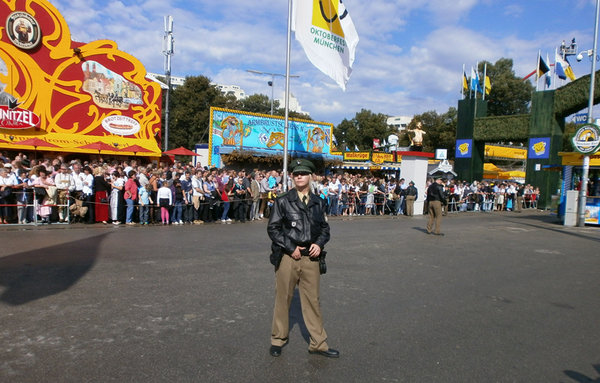A Month of Islam and Multiculturalism in Germany: October 2016
A Month of Islam and Multiculturalism in Germany: October 2016
A chronological review of some of the main stories about the rise of Islam in Germany during October 2016.
Soeren Kern | Gatestone Institute | November 27, 2016
October 1. Two migrants raped a 23-year-old woman in Lüneburg as she was walking in a park with her young child. The men, who remain at large, forced the child to watch while they took turns assaulting the woman.
October 2. A 19-year-old migrant raped a 90-year-old woman as she was leaving a church in downtown Düsseldorf. Police initially described the suspect as “a Southern European with North African roots.” It later emerged that the man is a Moroccan with a Spanish passport.
October 2. Finance Minister Wolfgang Schäuble called for the development of a “German Islam” to help integrate Muslims in the country. In an opinion article published by Welt am Sonntag, he wrote:
“Considering the diverse origins of Muslims in Germany, we want to promote the development of a German Islam, the development of self-assurance of Muslims living as Muslims in Germany, in a free, open, pluralistic and tolerant order, according to our laws and the religious neutrality of the state.
“There is no doubt that the growing number of Muslims in our country today is testing the tolerance of mainstream society. The origin of the vast majority of refugees means that we are increasingly dealing with people from very different cultures…. In this tense situation, we should not allow for the emergence of an atmosphere in which well-integrated people in Germany feel alien.”
October 4. Münchner Merkur reported that the 2016 Munich Oktoberfest recorded its lowest turnout since 2001. Visitors reportedly stayed away due to concerns about terrorism and migrant-related sexual assaults.
October 6. Frankfurter Allgemeine Zeitung reported on a German intelligence study which found that almost half the German Salafists who left for Syria or Iraq were active in mosques. “The mosques continue to play a central role in the radicalization of Islamists in Germany,” a spokeswoman for the German domestic intelligence agency, the Bundesamt für Verfassungsschutz (BfV), said. The ongoing study analyzes the background and course of the radicalization of persons who left for Syria or Iraq. The study has collected data from 784 Islamists who left Germany or were actively trying to leave the country. The BfV estimates that there are 9,200 known Salafists in Germany.




